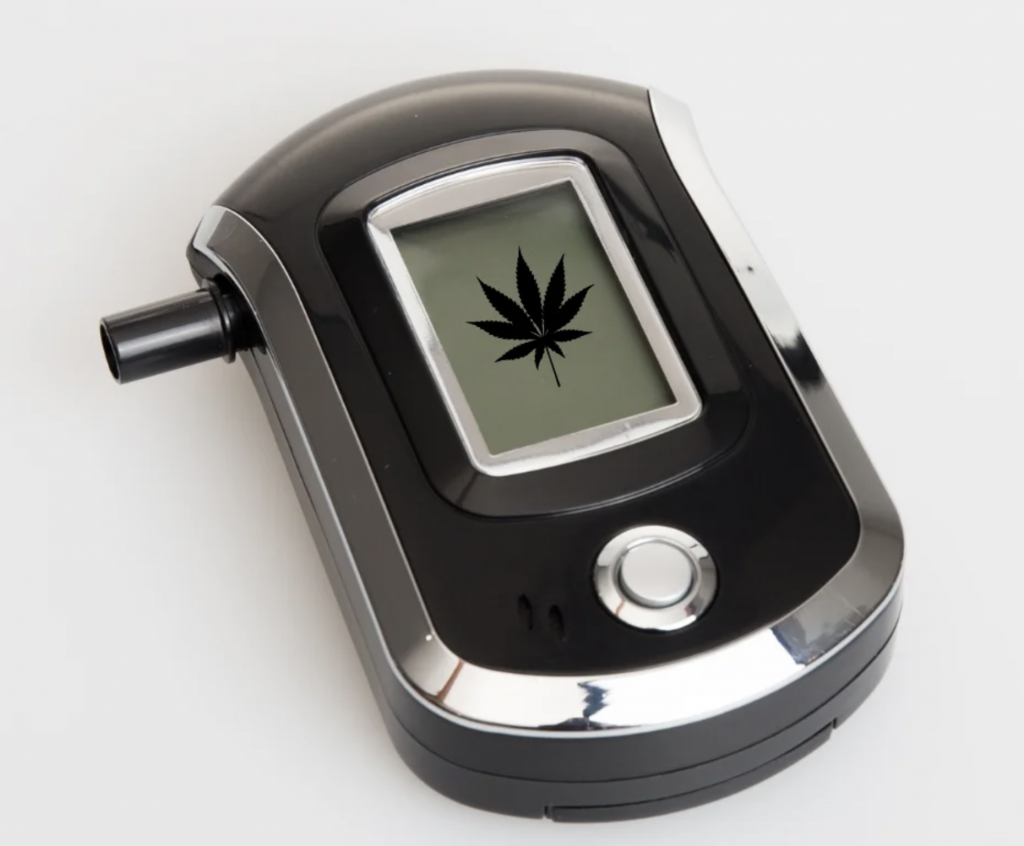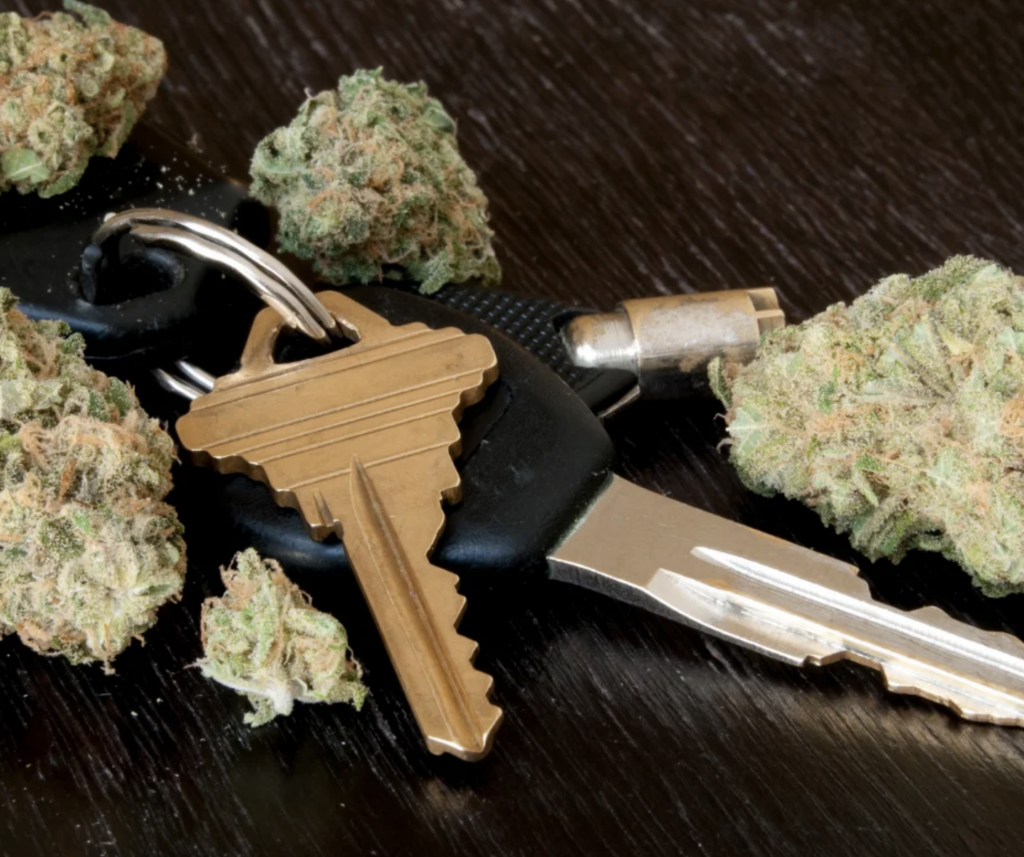
Medical marijuana has been legalized for patients and adults in many states across the United States. While this reform is a lot to celebrate, there is an issue that seems to be unaddressable that is coming to light in many states with cannabis legalization. This is the issue of driving while under the influence of cannabis and the inability to efficiently test for impairment. This is something that could have severe negative impacts on cannabis consumers as well as medical cannabis patients.
Medical marijuana recommendations are required for cannabis patients in order for them to legally obtain and utilize cannabis therapies. They then must obtain their medicine from a state-licensed dispensary or other legal avenues such as growing it themselves where permitted. They are then legal to consume their medicine; however, if they drive down the road even several days after their last consumption, they could risk legal issues. This is because there is no effective method for determining one’s impairment from cannabis based on the existence of THC metabolites in their systems.
Patrick Murphy – A Prime Example of the Smokescreens Surrounding Legalization and DUIs
This issue can be seen clearly in the case of The State of Pennsylvania versus Patrick Murphy. Patrick Murphy was pulled over by a Pennsylvania law enforcement officer for a headlight infraction. Upon the police officer approaching the car, he noted that he smelled the aroma of cannabis. The driver was not in possession of any cannabis and had not consumed it for several days. Despite driving perfectly and only being pulled over due to a broken headlight, Patrick found himself in legal trouble for his legal cannabis consumption. Despite not being impaired nor being in possession, he received a DUI. This is because Pennsylvania is one of only a few states with cannabis legalization that still enforces a zero-tolerance law that includes THC.
However, this is an issue that is affecting law enforcement’s ability to effectively determine impairment from THC in states across the country. In fact, the chief of the Saugerties Police Department, Joseph Sinagra, believes that New York “put the cart before the horse” by legalizing cannabis before defining a way to properly judge driving impairment by cannabis consumers and patients.
Testing for Cannabis Impairment Presents Elevated Issues
Several companies have tried to produce breathalyzer tests equivalent to that used to judge impairment from alcohol. Alcohol breathalyzers utilize an ethanol sensor to measure the blood alcohol concentration in one’s system. Measuring metabolites of cannabis can be achieved in the same way. So what’s the issue? Just like cannabis affects everyone differently, everyone metabolizes cannabis differently as well. This means that someone with a high concentration of THC metabolites in their system may not actually be impaired, while someone else may actually be impaired but show no signs of metabolites within their system. People also have various tolerances to cannabis. With alcohol, there is a defined parameter, commonly .08 BAC, that equates to impairment from alcohol for everyone across the board.
This is not true when testing for cannabis metabolites and their concentration of existence within one’s system. This was clearly shown as well in Patrick Murphy’s case. He willingly submitted to an impairment test in which his system was found to have the lowest detectable levels of THC metabolites. However, despite these metabolites existing in his system, he showed no signs of impairment. This, unfortunately, did not save him from 3 days in jail and a year of no license due to Pennsylvania’s zero-tolerance law.

Behavioral Tests Can be Bias and Ineffective Due to Medical Issues
There’s no scientific way to effectively determine one’s impairment from cannabis at this time based on common parameters. As you can imagine, this leaves law enforcement officers in a vicarious position and relying mainly on behavioral tests and their own judgment in order to make the appropriate decisions regarding whether or not a DUI should be issued. This method, however, opens the door for pure chaos as personal bias can come into play. Additionally, some behavioral tests, such as walking a straight line, can be difficult to perform for individuals that suffer from things such as chronic back or knee pain. This was the case with Patrick Murphy, who demonstrated an inability to maintain his balance while walking during his roadside evaluation.
Innovative Cannabis Tech is Emerging But Still Ineffective
Cannabix Technologies Inc., based out of Vancouver, claims to have created a “handheld THC breathalyzer” that has the ability to smell cannabis on a person’s breath. While a test may help identify whether or not someone has recently consumed cannabis via inhalation, there are many other ways to consume cannabis that do not involve smoking the raw plant, which would deem these tests ineffective. Consuming cannabis through methods such as cannabis edibles offers much more intensive effects, which would, in return, offer a higher rate of intoxication; however, a test such as the one developed by Cannabix Technologies would not be able to detect the consumption.
The bottom line is currently, there is no way to accurately say whether or not an individual’s driving is impaired due to cannabis consumption. This leaves medical cannabis patients as well as consumers at risk for legal ramifications even if they are not actually impaired while driving. This is yet another very grey area that you can find surrounding the true “legality” of cannabis in states where medical and/or retail markets exist.
Always Use Caution as a Consumer or Medical Marijuana Patient When Driving
If you are a consumer or patient, we urge you to always take caution when consuming cannabis prior to operating a vehicle. Just as you would with pharmaceuticals, do not operate a vehicle if you feel that your ability to drive safely is impaired in any manner. If you consume cannabis edibles, be sure to wait at least 2-3 hours to see how they affect you before getting behind the wheel of a vehicle. Hopefully, one day the research will be available to allow for the creation of a test that can accurately measure impairment from cannabis in real-time. Until then, the fear of a DUI is a real issue for both legal cannabis consumers and those that have taken steps to become medical marijuana patients.
Disclaimer: The information, including but not limited to, text, graphics, images and other material contained in this article is for informational purposes only. No material from this article is intended to be a substitute for professional medical advice, diagnosis, or treatment. Always seek the advice of your physician or other qualified health care provider with any questions you may have regarding a medical condition or treatment before undertaking a new health care regimen. Never disregard professional medical advice or delay in seeking it because of something you have read on this website.
